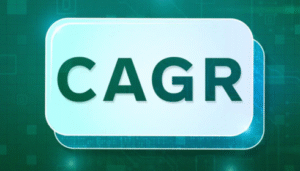1. What is an investment platform?
Answer: An investment platform is a web-based service offered to people who intend to invest in different types of financial instruments such as equities, bonds, mutual funds, or even ETFs. These typically provide tools for managing investments, executing trades, and tracking performance.
2. How do I know if an investment platform is trustworthy?
Answer: Find authority regulated platforms, especially relevant in the financial sectors (e.g., SEC in the US, FCA in the UK). Research and check the reviews/ rating with valid sources. Ensure that the platform maintains secure encryption and offers proper customer support.
3. What types of investments are available to be made on an investment platform?
Answer: Investment platforms may allow investment in a multitude of products from the list as given above-stocks, bonds, ETFs, mutual funds, real estate, and some cryptocurrency. IRAs could also be on offer.
4. Fees: What kind of fees am I going to face with this type of platform?
Answer: Fees differ for each platform but may include a trading fee, management fee, and account maintenance fee. The trading fee applies per trade for some platforms. Others offer zero-commission trades. Always be sure to know the fee structure of the trading platform before registering.
5. How do I choose a low-fee trading platform?
Answer: Search for platforms that have commission-free trading, especially on ETFs and equities. Avoid high management fees when it comes to investment on other passive types of investments. Compare the fee matrix across different service providers and look for the best value.
6. Do investment platforms offer tax-efficient accounts?
Answer: Many investment platforms offer tax-advantaged accounts such as IRAs or 401(k)s, which enable you to defer taxes on investment gains. Some also offer tax-loss harvesting tools to minimize tax burdens.
7. Can I invest in retirement accounts through investment platforms?
Answer: Yes, many platforms allow you to open tax-advantaged retirement accounts like IRAs, Roth IRAs, and SEP IRAs, giving you the ability to invest for retirement while benefiting from tax breaks.
8. What tools and resources do investment platforms provide?
Answer: Most platforms offer tools like portfolio trackers, research reports, educational resources, and advanced charting for more experienced traders. Some platforms also provide robo-advisory services for hands-off investing.
9. How do I decide between a robo-advisor and a self-directed platform?
Answer: Robo-advisors are best for new investors or for those who prefer to not actively manage their portfolio, as the robo-advisor automatically manages and rebalances the portfolio. Self-directed platforms provide more control and flexibility but require more knowledge and involvement.
10. Are mobile access available on investment platforms?
Answer: Most investment platforms offer mobile apps for iOS and Android, enabling you to view and manage your investments, place trades, and track performance anywhere, anytime.
11. What is the minimum amount that I can invest?
Answer: Minimum deposits vary from one platform to another. Some require no minimum at all, while others require a minimum of $500 to $5,000 to start investing. Look at the platform’s terms before opening an account.
12. How significant is the user interface of the platform?
Answer: A friendly interface is an important factor, especially for the first-time investor. Select an investment platform with a user-friendly interface that guides you through navigating the features and executing trades or monitoring investments without confusion.
13. What account options do investment platforms offer?
Answer: Account options include tax brokerage accounts, retirement accounts such as IRAs and 401(k)s, joint accounts, custodial accounts, and college savings accounts known as 529 plans.
14. Are investment platforms available that target specific investor types (for example, socially responsible investing)?
Answer: Yes, some sites cater to socially responsible or impact investors, whose portfolios are directed towards ESG-related factors. Find a platform whose values are like yours, especially if these matter to you.
15. How safe are investment platforms?
Answer: Reliable platforms employ industry-standard security measures, such as encryption, two-factor authentication, and fraud protection. Always ensure the platform has a good track record of security and data protection.
16. Is there customer support available if I need it?
Answer: Most investment platforms offer customer support via email, phone, or chat. Check the platform’s hours of support availability, response time, and user reviews to gauge the quality of service.
17. What research tools do platforms provide to help with decision-making?
Answer: Platforms often provide access to research reports, market analysis, financial news, and company data. Some may also offer advanced tools like stock screeners, performance comparisons, and risk analysis.
18. Are there any restrictions on withdrawals from my account?
Answer: Most sites allow easy withdrawals, but there may be restrictions depending on the type of account (e.g., retirement accounts may have penalties for early withdrawal). Make sure you understand the terms and conditions of withdrawal before investing.
19. Can I automate my investments?
Answer: Many options offer the capacity to set automatic investments through the use of either recurring deposits or automatic rebalancing. Mostly, robo-advisors also automate by distributing your money through investment according to your risk level and goals.
20. Which platform is ideal for my type of investment objectives?
Answer: Select a platform that provides the products, tools, and features that align with your investment strategy, whether you are a long-term investor, a trader, or saving for retirement. Evaluate the educational resources, account options, and customer support to ensure they meet your needs.
The right investment platform is chosen with regard to the goals, fees, user experience, and tools available. Based on these criteria, you will be able to choose a platform that aligns with your investment style and financial objectives.










Yo, heard about 55wincom from a buddy. Thinkin’ of checkin’ it out. Heard they got some decent odds. Wish me luck! Gonna give 55wincom a try!